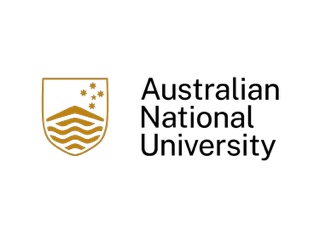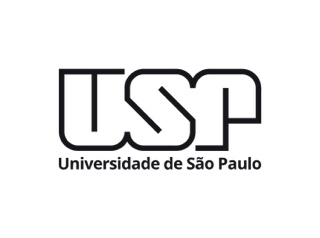Global Climate Call
{{ time.start_TS | TS2dateFormat('MMM') }}
{{ time.start_TS | TS2dateFormat('YYYY') }}
| 14 EUR / 9 EUR reduced |
| All holders of a Long Night of the Sciences ticket can take part. Please book your ticket in advance via www.langenachtderwissenschaften.de. |
| English, German |
| Humboldt Lab, 1st floor |
| Belongs to: After Nature |
Live video calls and lectures on global climate research
The climate crisis is affecting the entire planet. Scientists around the world are researching global warming – and solutions to slow it down. For the Long Night of Science, the Humboldt Lab will be streaming live to research projects all over the world: to the RV Polarstern in the Arctic, to a scientist in the Amazon and to a bushfire research station in Australia.
Short presentations and video calls provide insights into current research on climate change. At the ‘Call a Scientist’ station, visitors can pick up the phone themselves to speak to researchers. A climate game by students encourages visitors to find solutions to the climate crisis.
20:00-21:30
FROM MELTING ICE SHELVES
Live call to the RV Polarstern in the Arctic
What is it like to live on a research vessel in the Arctic? What is being researched there? In cooperation with the Alfred Wegener Institute for Marine and Polar Research, the Humboldt Lab goes live on the RV Polarstern off Spitsbergen. There, researchers measure the plankton content as well as temperature, density and salinity from the water surface to a depth of thousands of metres in the so-called AWI house garden.
After a thematic introduction by scientist Sandro Dahlke, visitors can talk to crew member Frank Wenzhöfer in the ‘Call a Scientist’ cabin.
With Sandro Dahlke (AWI Potsdam)
The polar regions are warming up to four times faster than the rest of the world. At the same time, due to their remoteness and extreme climatic conditions, there is little observational data from this epicentre of climate change. This makes the findings of scientists on research expeditions from the not-so-eternal ice all the more important. Sandro Dahlke gives a first-hand account of everyday research life at the Arctic AWIPEV station on Spitsbergen and on an icebreaker expedition to the Arctic on the Polarstern. What are the daily challenges and tasks, and how does the measurement data help us to better understand our climate?
21:30-23:00
FROM DWINDLING FORESTS
Live call to the Amazon
In the Brazilian city of Manaus, a metropolis in the middle of the Amazon region, many urban rivers have become abandoned, polluted areas. Architect Daniel Falcone from the Universidade de São Paulo is researching new sustainable urban concepts: can the 17-kilometre-long Mindu Igarapé be developed into a green infrastructure network? Can river shipping revolutionise transport and Manaus be transformed into a “sponge city”?
In a one-hour live call to the Amazon, the Brazilian scientist gives a brief introduction before visitors can ask him questions in the ‘Call a Scientist’ booth. Prior to this, the ethnographer Indrawan Prabaharyaka reports on new concepts for the protection of primates in the dwindling mangrove forests of Indonesia. (In English)
With Indrawan Prabaharyaka (HU Berlin)
In Muara Gembong, an estuary on the outskirts of the tropical megacity Jakarta, non-human primate species live in the last fragments of mangrove forest, isolated by fishing settlements and aqua farms. Rising sea levels, land subsidence, over-salinisation and the lack of clean water affect both human and non-human inhabitants of the region, but to an unequal extent. Ethnographer Indrawan Prabaharyata reports on the transdisciplinary collective Labtek Apung, which has developed prototypes of water desalination plants for and with monkeys – in the hope of learning how we can repair our more-than-human kinship with them.
23:00-00:30
IN THE BURNING BUSH
Live call to Australia
Forest fires have destroyed livelihoods and claimed many lives in the last ten years. As a result of climate change, forest fires will become more frequent and more intense. This makes it all the more important to determine where and when they are likely to occur. Nicolás Younes from the Australian National University (ANU) in Canberra, where fires have caused major damage, is researching how satellites can ‘see’ when and where vegetation can catch fire. The aim is to develop better satellite sensors and algorithms that recognise and help prevent fires.
Nicolas will give a live introduction before visitors can ask him their questions at the ‘Call a Scientist’ station (in English). A lecture by sociologist Marvin Heine introduces the topic.
With Marvin Heine (HU Berlin)
Forest fires occur as part of a rapidly changing earth atmosphere and at the same time as part of a collectively felt, social, affective atmosphere. However, as the role of senses and emotions in environmental disasters is poorly understood, Marvin Heine’s research project addresses the sensory and affective dimensions of forest fires and how these experiences are shaped by and shape social discourses on risk perception, disaster management and global warming. At the ‘Long Night of Science’, the environmental researcher will give a general overview of the background and aims of his research and then report in detail on his ethnographic field research in Germany, Italy and Spain.
20:00, 21:00 and 22:00
Climate Game “A multitude of voices”
Finding adaptations to climate change in a playful way
Explore how climate change – and flash floods in particular – can be tackled in an exciting game. The interactive climate game – developed by the HU’s Participatory Game Design project team – rewards critical thinking and collective action and invites players to contribute to sustainable solutions. The aim is to create a sense of shared responsibility in tackling climate problems.
Organised and accompanied by HU students. The game will be played in English.
Participants
Sandro Dahlke is a meteorologist and atmospheric physicist. He studied climate physics in Kiel from 2009 to 2015 and was a doctoral student at the Alfred Wegener Institute in Potsdam from 2016 to 2019. He has been an employed scientist there since 2020. He has participated in eight research cruises to the Arctic.
Daniel Falcone is an architect and urban planner at the Federal University of Amazonas (UFAM). As part of a CAPES scholarship, he completed a dual study program at University College Dublin, where he worked on the Reusing Dublin project. He has a specialization in Architecture and Lighting from the Institute of Postgraduate and Graduate Studies (IPOG). He is currently a research fellow in the project “Time to Act: designing actions for cities’ adaptation to climate change” and a member of the “Laboratório Verde” (green laboratory) at the Faculty of Architecture and Urbanism of the University of São Paulo (LabVERDE, FAU-USP), where he wrote a master’s thesis on green infrastructure and Amazonian rivers.
Marvin Heine is an environmental sociologist and doctoral candidate at the Humboldt University Berlin. He is deeply interested in forest fires, affective atmospheres, and soundscapes. His research focuses on the influence of sense perception on processes of socialization, as well as the storied and sensorially mediated transformation of human-environment systems.
Indrawan Prabaharyaka is a researcher at the Institute of European Ethnology at Humboldt-Universität zu Berlin. As member of the Collaborative Research Center 1265 “Re-Figuration of Spaces”, he studies the application of urban climatology in urban planning in the City of Stuttgart. He is also part of the transdisciplinary collective Labtek Apung that is currently working on an interspecies contract.
Nicolás Younes is an engineer, a geospatial and remote sensing scientist, and an entrepreneur, who’s passionate about Earth Observation, knowledge transfer, education, and about understanding spatial and temporal changes in Australian forests. Nicolas works in local, continental, and global-scale projects that seek to further our understanding of the vegetation phenology and flammability through the use of remote sensing technologies.
Currently, Nicolás is deeply involved in the development of the OzFuel satellite mission, the first satellite the world’s first satellite created specifically to monitor the flammability of eucalypt forests. Through the OzFuel project, he’s helping advance Australia’s space industry. His work ranges from using hyperspectral sensors, to data analysis, machine learning, and biochemical analysis of flammable components in eucalypt trees.
Nicolás holds an Environmental Engineering degree, a Master’s degree in Oil and Gas Exploration and Production, a Master’s degree in Natural Resource Management, and a PhD in Earth and Environmental Sciences.
Frank Wenzhöfer is a deep-sea researcher and works at the Alfred Wegener Institute Helmholtz Centre for Polar and Marine Research and the Centre for Hadal Research at the University of Southern Denmark (Odense). He studied agricultural sciences and environmental protection at the Justus Liebig University in Giessen, specialising in soil and water microbiology. He then completed his doctorate at the University of Bremen and the Max Planck Institute for Marine Microbiology, specialising in the carbon cycle of the deep sea. Afterwards, he turned his attention to coastal waters and worked for 4 years at the Marine Biological Laboratory of the University of Copenhagen in Helsingør (Denmark). He then returned to the Max Planck Institute for Marine Microbiology to devote himself to deep-sea research with a focus on extreme habitats. In 2010, the working group merged with a group at the Alfred Wegener Institute (AWI) Helmholtz Centre for Polar and Marine Research, where he has been working in the HGF-MPG Bridge Group for Deep-Sea Ecology and Technology ever since. Since 2020, he has also been a professor at the Centre for Hadal Research at the University of Southern Denmark in Odense, where he is involved in research into the deepest marine regions, the deep-sea trenches.
During his more than 25 years as a deep-sea researcher, he has always focussed on the use and development of robotic systems to study the deep-sea habitat directly and in situ. Frank Wenzhöfer has taken part in over 50 national and international expeditions, always with the aim of conducting comparative studies of different seafloor habitats in order to understand the role of biogeochemical processes in the seafloor and the influence of benthic communities.
The Participatory Game Design (PDG) study project group consists of five master’s students from the Integrated Natural Resource Management (INRM) program at the Humboldt-Universität zu Berlin: Alieh Maddah, Japhet Uchechukwu Agu, Jayshrita Bhagabati, Hai Tran, and Mina Tayyebi. The group is coordinated by Professor Dr. Klaus Eisenack, head of the Resource Economics working group at HU Berlin. The group members come from a variety of academic and professional backgrounds, ranging from social sciences to engineering, and are united by their interest in natural resource management and sustainable development.
The study project is a part of the transdisciplinary research initiative Climate and Water under Change (CliWaC), which addresses climate-related water issues in the Berlin-Brandenburg region. The group was formed to develop a board game focused on flash flood issues, with the goal of stimulating stakeholder negotiations and improving current understanding of the complexities involved in water management.
An event organized by



